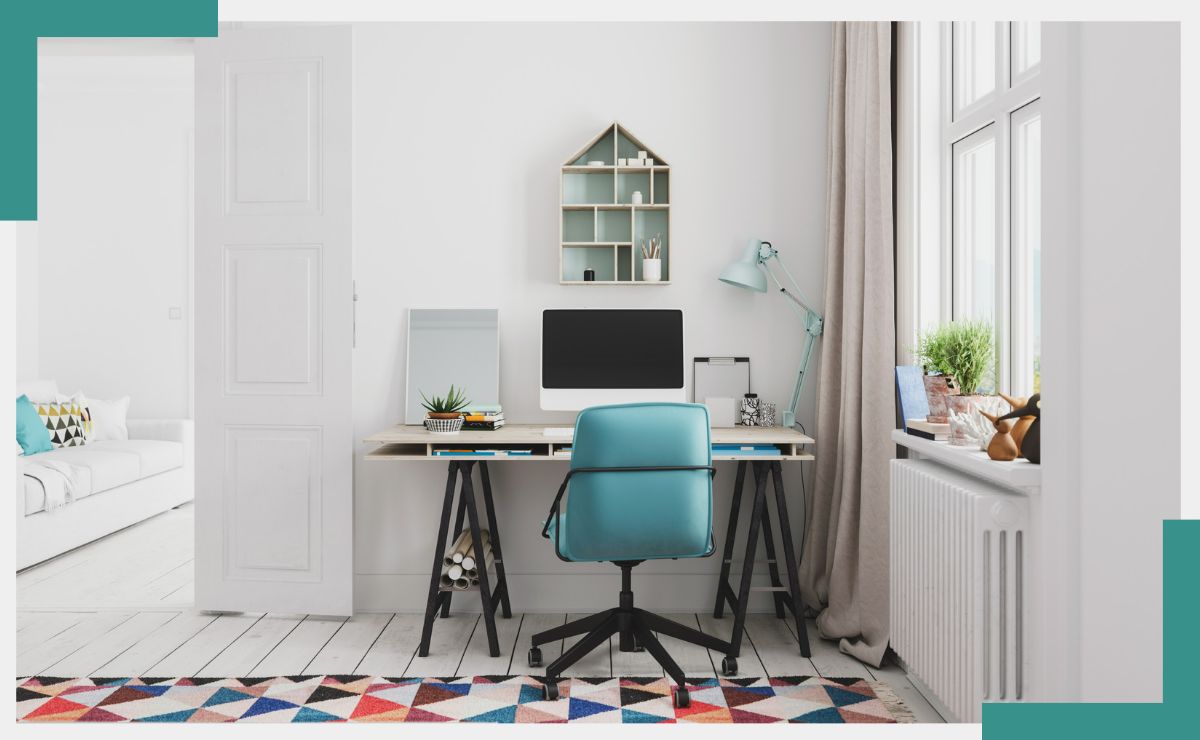
Workers on the corporate front have been dreaming about having a home office days for years. In large and modern companies, this is already a standard practice. In the “not-so-advanced” ones, the prevailing mentality is “if you are not at my fingertips, and I do not see you, then you are doing nothing.” In both cases, working from home is considered a privilege.
I have always been a huge fan of working from home or from anywhere else, as long as it has no fixed working hours or location. With a few interruptions, I spent many years working the way I dreamed.
In all these years, “working-without-a-fixed-location” turned out to have not only advantages but also some disadvantages. For me, the benefits outweigh the cons. Still, I must acknowledge that the latter has given me several invaluable and painful lessons.
Here’s what I’ve learned from many years of “working from home”:
For me, the great advantage of “freelance work” is that I can “work on my computer” in a variety of places and a wide range of work environments. I tried to work in co-working spaces, from home, from selected cafes. What I notice every time, however, is that if I use the same location several times in a row, it runs out of “fun” potential for me. I start to feel it like an ordinary office. I begin to have an overwhelming desire to find a new place to work.
In this sense, the isolation imposed by the COVID-19 crisis transforms work from home into the new ‘standard office’ and, unfortunately, removes much of the charm of this approach to work.
In the beginning, working from home is great – you can get up whenever you want, you can work in your pajamas, you can visit the fridge 36 times a day. Soon you find that the work is unfinished, and the stress levels increase exponentially with deadlines approaching.
The same applies to the work at coffee shops, the so-called “cofficing”. It’s fun at first – you drink coffee, you eat cakes, you check tasks. At one point, however, it turns out that you spend 60-70% of your time queuing (or waiting for waiters), putting milk in coffee, eating cake(s), trying to connect to the café’s wireless network, looking for a power plug for your laptop’s, etc.
Therefore, it is essential to clarify for ourselves – do we want to work and achieve results, or do we want to lie down, eat pastries, and drink coffee after coffee? If the former, unfortunately, we have to follow the same work discipline as in the office – defining tasks, writing emails, deep work, reports, backups, and everything else that is part of the workflow.
If you look at advertisements for courses and books on home business and freelancing, for example, you’ll notice happy young people working on shiny laptops on hammocks, in cafes, laying on puffs, sitting on the kitchen table, resting on sofas, beds, and the like.
When you start working remotely and try to do the same for 6 hours straight, you find that your waist becomes a pancake, and then you can’t stand, walking like a robot. If you try to work on the beach, you notice that your keyboard is filling with sand, and your impressive glossy screen reflects every sun, and you cannot see anything.
Important conclusion: Find a comfortable chair. Adjust it so that your elbows are at the level of the tabletop. Put it all in a quiet place or put on a soundproof headset. Otherwise, you will not do anything, but at the same time, you will get diseases of the musculoskeletal system.
Believe me, I’ve been through it all, I’m going through it now. There is no way you can do any meaningful work if you have shouting, rolling, fighting, and dragging children around.
Do not try to work while they are in the same room or being conscious. It just doesn’t work.
What can you do? Only work when the children are sleeping. If you have a grandmother or a caretaker, then consider yourself lucky – send her with the kids outside and then get to work.
How to proceed under the conditions of COVID-19 home insulation? There is a way I call “transferring to an alternate space-time continuum”. In simpler words, it means – go to another room, lock it, put on your headphones, and play the music loud.
When working remotely, the most important thing for your success, apart from your professional skills and contacts, are your technological tools – computer, Internet connection, storage devices, mobile devices, etc.
For good or for worse, teleworking (and online businesses in particular) require us to be a little more technically literate than usual.
If you are a soldier and you don’t keep your weapon clean and loaded, then go into a battle, no good news is waiting for you. The same goes for the “battle” on the online front.
Get to know your computer. Keep it clean. Do not fill it with coffee and water. Do not eat over it, spitting crumbs on the keyboard. Do not hit it or kick it. Provide space around its fans for cooling.
Get to know your operating system, no matter what it is. How to back up files? Is your hard disk full? How can you clean it? How to protect yourself from viruses? How to connect to Bluetooth devices?
Familiarize yourself with the software products you use. What office suite do you have, and how to use it most efficiently? What online applications do you need to work with, what is the access data for them?
Dive into cybersecurity. Learn how to protect your computer and your main online accounts from a breakthrough. Store your passwords in a safe place, preferably with the help of a password manager. Use complex passwords different for each application. Run two-factor authentication, if not for all, at least for critical accounts like Gmail, Dropbox, Facebook, and the like.
As the saying goes (or at least I believe so):
“The good samurai knows how to take care of his sword.”
When working remotely, you can observe the effect of “soft communication.” The boss or client is not right next to us, and they do not call us, they do not quarrel, they do not resent us. We get emails and messages, but they don’t have the same strong effect as if someone were “chewing your ass” live.
This effect is somewhat pleasant and reduces stress, but on the other hand, it can mislead us. There are tasks and problems whose importance and urgency you can underestimate because we learn about them through “non-shouting” channels.
Therefore, beware of online communication. It’s not an “unreal” world. It just doesn’t bang with its fist on your desk. However, if you ignore your messages (because you can stop notifications, for example), the real problem will hit you just as much.
Most people do not like to work in an office, but it is much easier than working at home. There are rules in the office – when to come, when to go, how to dress, in what room what is being done, when what task to perform, etc. Someone else has invented and defined everything for you. It’s annoying, but – in most cases – pretty easy to follow.
When working from home, you have absolute freedom. Still, also you have the total responsibility to mobilize, get the job done, take care of your health, and manage your time well.
The one extreme is continuously going to the fridge, watching movies, and lying on the sofa, while the deadlines are coming closer and closer.
On the other extreme, you work up to 18 hours a day, forgetting to eat and going to the toilet, answering emails at 3 o’clock in the morning.
I cannot believe I am saying this, but the ideal option is to set yourself a “work time”. Divide your day into blocks like you go to work in an office. Set aside time for work, rest, eating, sports. Don’t mix them up and focus on just one activity at a time.
–
I’m sure there are many more than seven things we can learn from remote working. I will be glad if you share your impressions, lessons, and how you tackle the challenges of the home office.
Send your questions and inquiries. I will reply in less than 24 hours…
Join my high-value newsletter (free). No news, no events, no digested articles. Just a pure, actionable information and guidance on applicable solutions for startups’ biggest marketing and business problems.
Important: No SPAM. No B.S. Pure gold with every newsletter.

(c) 2018-2023. MARKETING in the FLOW, Boril Bogoev, Ph.D. All rights reserved.